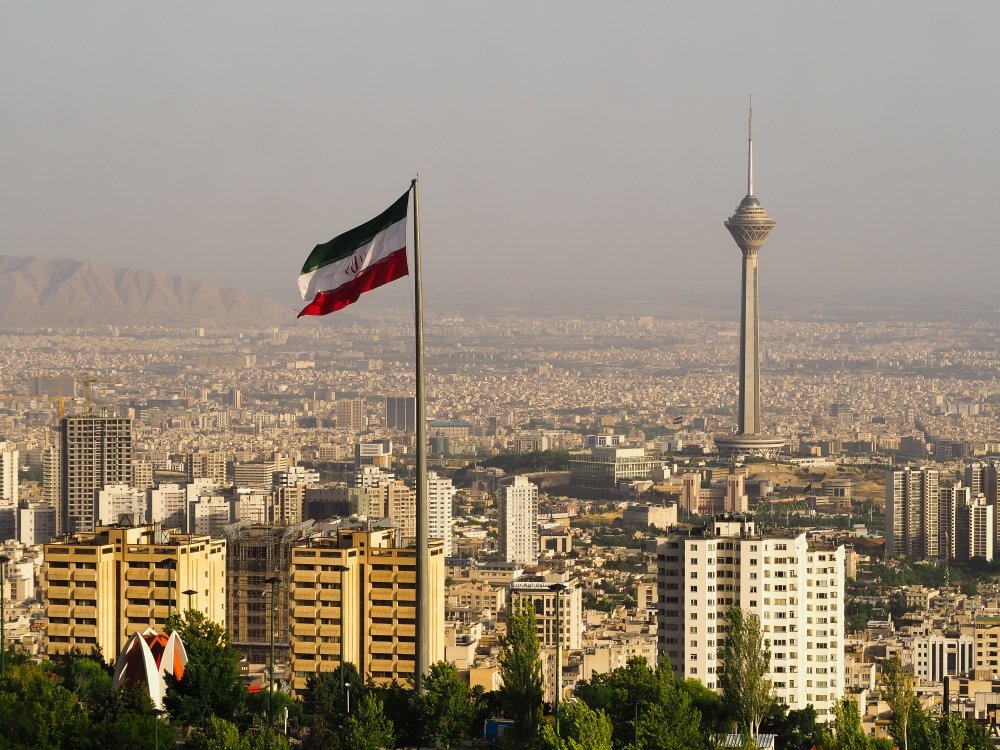Earlier August, Kuwait appointed its first ambassador to Iran since 2016.
The United Arab Emirates will reassign its ambassador to Iran following a six-year absence as relations between the two countries strengthen amid a broader regional rapprochement.
The UAE ministry of foreign affairs announced on Sunday that Envoy Saif Mohammed Al Zaabi would return to Tehran “in the coming days” after years of severed relations between the two neighbouring nations.
This comes as Abu Dhabi boosts effort to advance ties with Tehran “to achieve the common interests of the two countries and the wider region”, the foreign ministry said in a statement.
During a phone call last week, Iranian Foreign Minister Hossein Amirabdollahian and his Emirati counterpart Sheikh Abdullah bin Zayed Al Nahyan discussed ways of strengthening bilateral relations, including the possibility of sending the ambassador back to Tehran, Reuters reported.
The UAE downgraded its diplomatic ties with Iran in 2016 after protestors attacked Saudi Arabia’s embassy in Tehran, prompted by Riyadh’s execution of prominent Shia scholar Sheikh Nimr Al Nimr.
Shortly after, the Iranian officials changed the name of the street in which the Saudi embassy was located, naming it after the executed Sheikh Nimr, one of 47 people executed for alleged “terrorism offences” in 2016.
In 2016, the UAE summoned home its ambassador in Tehran.
In July, the head of Tehran’s Strategic Foreign Relations Council Seyed Kamal Kharrazi told Al Jazeera that Qatar had proposed a regional dialogue with Iran that was welcomed by the Islamic Republic.
Kharrazi, who served as Iran’s former foreign minister, failed to disclose further details on the Qatari proposal, however he reiterated Tehran’s support for a regional dialogue.
At the Doha Forum earlier this year, Qatar’s Foreign Minister Sheikh Mohammed bin Abdulrahman Al Thani also called for diplomacy.
“We believe in diplomatic solutions to maintain global security and the resolving of crises through dialogue and diplomacy,” he said.
Regional rapprochement
Tense relations began taking a downward tangent after Abu Dhabi backed the Trump administration’s decision to unilaterally withdraw from the 2015 nuclear deal in 2018 and joined a crippling sanctions regime targeting Iran’s economy.
The Emirates has been generating attempts of balancing diplomatic relations with Iran and the occupying state of Israel, as the former is in constant criticism of Abu Dhabi’s relations with Tel Aviv.
While efforts to repair the ties between the two sides have been kept on a separate diplomatic agenda, Tehran has evidently never ceased to condemn the UAE for forging official links and trade agreements with Israel since the Abraham Accords.
In the year 2020, neighbouring states flocked to normalise ties with the Israeli regime, with the UAE and Bahrain signing the controversial accords to solidify all diplomatic relations.
Morocco and Sudan shortly followed suit, despite public outrage and opposition in both countries.
Following the attacks on tankers off Gulf waters and on Saudi oil sites in 2019, the UAE began its reengagement approach with Iran after years of hostility.
Saudi Arabia has also reportedly taken steps to improve its ties with the Islamic Republic since last year. This came at a time when the Gulf Arab states closely monitored efforts to restore the landmark nuclear deal, formally known as the Joint Comprehensive Plan of Action (JCPOA).
The UAE has previously said that Arab Gulf states should join efforts in a “collective diplomacy” manner to reach an agreement with Iran, referring to the JCPOA.
The UAE holds business and trade connections with Iran “stretching back more than a century, with the emirate of Dubai long being one of Iran’s main links to the outside world,” reports said.
During the Iranian foreign minister’s visit to the UAE in May, the two sides emphasised the thawing of relations, with Amirabdollahian saying in a tweet: “A new page was opened in the relations between the Islamic Republic of Iran and the Emirates. We warmly shake the hands of our neighbours.
“The warmth of relations between neighbours disappoints the enemies of the region.”
The trip by the top Iranian diplomat at the time was considered the highest level visit by an Iranian official to the Arab Gulf country since Yemen’s Houthi movement launched a deadly strike on the UAE in January, reports said.
Iran’s deputy Foreign Minister Ali and top chief negotiator Ali Bagheri Kani visited the UAE in November, an event in which he said the two states had “agreed to open a new chapter” in their bilateral relations.
Earlier in August, Kuwait appointed its first ambassador to Iran since 2016 after recalling its ambassador to Tehran in solidarity with Saudi Arabia after it severed ties with the Islamic Republic in 2016.







